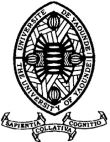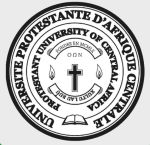Hémangioendothéliome Épithélioïde de la Jambe à Brazzaville
Epithelioid Hemangioendothelioma of the Leg in Brazzaville
DOI :
https://doi.org/10.5281/hra.v2i6.5721Mots-clés :
Hémangio-endothéliome, épithélioide, parties molles, tumeur vasculaireRésumé
RÉSUMÉ
L’hémangio-endothéliome épithélioïde (HEE) est une tumeur vasculaire à malignité intermédiaire survenant essentiellement dans l’os, les tissus mous, le poumon et le foie. Souvent considéré comme une tumeur à malignité intermédiaire entre les hémangiomes bénins et les angiosarcomes agressifs, l’HEE comporte un potentiel de récidives locales, de métastases ganglionnaires et à distance et ne s’accompagne pas fréquemment de décès dans les formes localisées, mais le pronostic est sombre dans les formes métastatiques. Nous rapportons l’observation d’un patient âgé de 37 ans, suivi dans le service d’oncologie médicale du CHU de Brazzaville pour une tumeur des parties molles de la jambe gauche, dont l’analyse histologique de la biopsie avait conclu à un hémangio-endothéliome épithélioïde. Le bilan d’extension réalisé a retrouvé des images scanographiques en faveur de localisations secondaires pulmonaires. Le projet thérapeutique avait consisté en une chirurgie réductrice suivie d’une chimiothérapie palliative mais faute de moyens financiers, le patient n’a pas bénéficié de cette prise en charge et est décédé.
ABSTRACT
Epithelioid hemangioendothelioma (EHE) is a vascular tumor, usually considered as a low-grade malignancy that occurs primarily in bone, soft tissues, lung and liver. Often considered as an intermediate malignancy tumor between benign hemangiomas and aggressive angiosarcomas, EHE has the potential for local recurrence, lymph node and distant metastasis and is not frequently accompanied by death in localized forms, but the prognosis is poor in metastatic conditions. We report the case of a 37-year-old patient, who was referred to the medical oncology department of the Brazzaville University Hospital for the management of a tumor of the soft tissues of the left leg, whose histological analysis of the biopsy had concluded to an epithelioid hemangioendothelioma. The extension assessment carried out had found secondary pulmonary locations at CT-scan. The therapeutic project had considered a tumor-reductive surgery followed by a palliative chemotherapy, but due to lack of financial ressources, the patient did not benefit from this care and died.
Références
Cousin S, Le Loarer F, Crombé A et al. Hémangioendothéliome épithélioïde. Bull Cancer 2019;106(1):73‑83.
Fletcher CDM, Bridge JA, Hogendoorn P et al. WHO classification of tumours, IARC WHO classification of tumours. WHO classification of tumours of soft tissue and bone. IARC 2013; 5 (2).
Hannachi Sassi S, Mansouri D, Abbes I et al. Hémangio-endothéliome épithélioïde des tissus mous: À propos d’un cas. Rev Chir Orthopédique Réparatrice Appar Mot. 2005 ; 91 (7) : 671‑5.
Mindell E. Enzinger , Weiss’s. Soft Tissue Tumors. 4th ed. 2001;
Sporn T, Butnor K, Roggli V. Epithelioid haemangioendothelioma of the pleura: an aggressive vascular malignancy and clinical mimic of malignant mesothelioma. Histopathology 2002 ; 41:173‑7.
CDM F, KK U, F M. Pathology and Genetics of Tumours of Soft Tissue and Bone [Internet]. [cité 8 déc 2021]. Disponible sur: https://publications.iarc.fr/Book-And-Report-Series/Who-Classification-Of-Tumours/Pathology-And-Genetics-Of-Tumours-Of-Soft-Tissue-And-Bone-2002
Weiss SW, Enzinger FM. Epithelioid hemangioendothelioma a vascular tumor often mistaken for a carcinoma. Cancer. 1982 ;50 (5) : 970‑81.
Mentzel T, Beham A, Calonje Eet al. Epithelioid Hemangioendothelioma of Skin and Soft Tissues: Clinicopathologic and Immunohistochemical Study of 30 Cases. Am J Surg Pathol 1997 ; 21(4) : 363‑74.
Perkins P, Weiss SW. Spindle Cell Hemangioendothelioma: An Analysis of 78 Cases with Reassessment of Its Pathogenesis and Biologic Behavior. Am J Surg Pathol. 1996 ; 20 (10) : 1196‑204.
Hadiji N, Kallel M-H, Sellami M et al. Hémangioendothéliome osseux multicentrique. Rev Chir Orthop Reparatrice Appar Mot. 2002 ; 88 (1) :78-81.
Duke D, Dvorak AM, Harris TJ et al. Multiple Retiform Hemangioendotheliomas: A Low-Grade Angiosarcoma. Am J Dermatopathol 1996 ; 18 (6) : 606‑10.
Bardouni A, Elouakili I, Ouchrif Yet al. Hémangioendothéliome épithélioïde de la cuisse: à propos d’un cas. Pan Afr Med J 2014 ; 18 :106.
Tan D, Kraybill W, Cheney RT et al. Retiform hemangioendothelioma: a case report and review of the literature. J Cutan Pathol 2005 ; 32 (9) : 634‑7.
Collin F. Nouveautés sur les tumeurs épithélioïdes des tissus mous. In: Annales de Pathologie. Elsevier Masson 2012: 111‑4.
Pålsson B. Epitheloid hemangioendothelioma. Acta Oncológica 1999 ; 38 (5) : 659‑62.
Valle AA, Kraybill WG. Review. Management of soft tissue sarcomas of the extremity in adults. J Surg Oncol 1996 ; 63 (4) : 271‑9.
Téléchargements
Publié-e
Comment citer
Numéro
Rubrique
Licence
© Bolenga Liboko Alexis Fortuné, Moyikoua Franck Régis, Litingui Mboba TM, Rissia Ferdinand, Mavoungou Kedel, Nsonde-Malanda J, Nkoua-Mbon JB 2024

Cette œuvre est sous licence Creative Commons Attribution - Pas de Modification 4.0 International.
Authors who publish with this journal agree to the following terms:
- Authors retain copyright and grant the journal right of first publication with the work simultaneously licensed under a Creative Commons Attribution License CC BY-NC-ND 4.0 that allows others to share the work with an acknowledgement of the work's authorship and initial publication in this journal.
- Authors are able to enter into separate, additional contractual arrangements for the non-exclusive distribution of the journal's published version of the work (e.g., post it to an institutional repository or publish it in a book), with an acknowledgement of its initial publication in this journal.
- Authors are permitted and encouraged to post their work online (e.g., in institutional repositories or on their website) prior to and during the submission process, as it can lead to productive exchanges, as well as earlier and greater citation of published work










